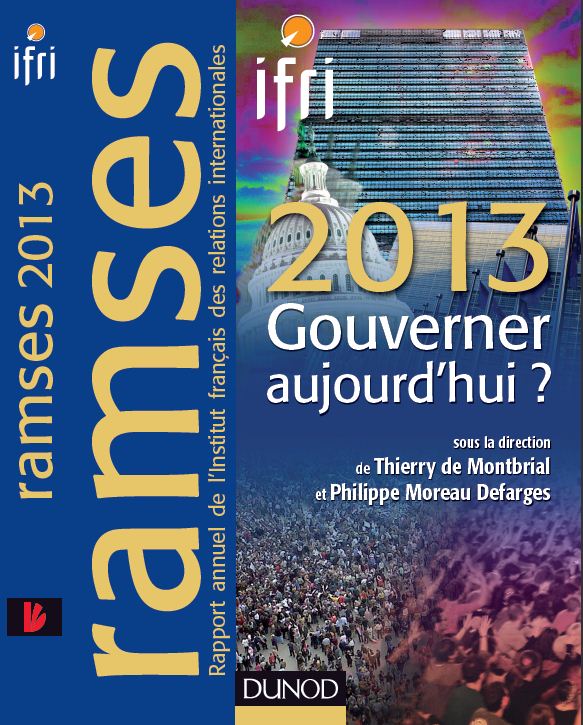Economy
The economy is an essential attribute of power and a major component of international relations. While geopolitical tensions are on the rise, economic interdependence remains strong.
Related Subjects

The WTO and the Customs Union: What Consequences for the Russian Banking Sector?
Russia is now a member of World Trade Organization (WTO) and of the Eurasian Customs Union between Russia, Belarus and Kazakhstan. Questions remain over how this new global and regional integration will affect the competitive environment of the Russian banking services industry.

Quand les embouteillages " créent " la ville - L'influence de la congestion sur la structure et l'économie urbaines à Accra (Ghana)
Globalization of Japanese firms: Long-run Trends, Cross-sectional Variations, and Policy Implications
Japanese firms are increasingly involved in various global business operations - not only in traditional international trade in goods, but also in offshore production and the new mode of globalization: offshore outsourcing.
Is Africa's Recent Economic Growth Sustainable?
Hardly a week goes by without an African investors’ conference or growth summit.

RAMSES 2013. Gouverner aujourd'hui ?
RAMSES (Le Rapport annuel mondial sur le système économique et les stratégies), is a yearly publication that provides in-depth reviews and prospective analysis on current events, providing readers with indispensable insights and perspectives for understanding contemporary geopolitics on the global scale. Edited by Thierry de Montbrial and Philippe Moreau Defarges, RAMSES relies on the expertise of Ifri’s research team and its network of associates.
The Ongoing Economic Crisis-Series 5. What Precipitated the Economic Bubble in Europe, and How Did It Collapse?
This series of policy papers, published by Ifri and the Canon Institute for Global Studies, provides a Japanese perspective on the causes, the mechanisms and the consequences of the global economic crisis, as well as the measures implemented by the States to cope with it.

Russia: Will the Web Reinvent Policy?
The Web has seen a spectacular development in Russia, opening an intermediary political space through which protesters against the regime have been able to coalesce, as shown by the events in late 2011 and early 2012.
The Ongoing Economic Crisis - 3 & 4: The US Authorities and the Financial Crisis / Fiscal Austerity as a Mistake
This series of policy papers, published by Ifri and the Canon Institute for Global Studies, provides a Japanese perspective on the causes, the mechanisms and the consequences of the global economic crisis, as well as the measures implemented by the States to cope with it.
The Ongoing Economic Crisis - 1 & 2: Comments on the EU Strategy / The Causes of the Crisis
This series of policy papers, published by Ifri and the Canon Institute for Global Studies, provides a Japanese perspective on the causes, the mechanisms and the consequences of the global economic crisis, as well as the measures implemented by the States to cope with it.
Ukraine at the Crossroads: Between the EU DCFTA and Customs Union
After serious decline in the 1990s, Ukraine's economy finally started its recovery and systemic reform in early 2000. While the economy rapidly grew by 2008, its transformation remained unfinished. Ukraine has three possible roads to development.
Support independent French research
Ifri, a foundation recognized as being of public utility, relies largely on private donors – companies and individuals – to guarantee its sustainability and intellectual independence. Through their funding, donors help maintain the Institute's position among the world's leading think tanks. By benefiting from an internationally recognized network and expertise, donors refine their understanding of geopolitical risk and its consequences on global politics and the economy. In 2024, Ifri will support more than 70 French and foreign companies and organizations.






